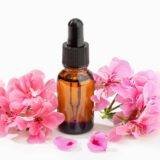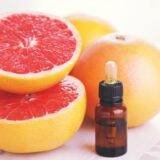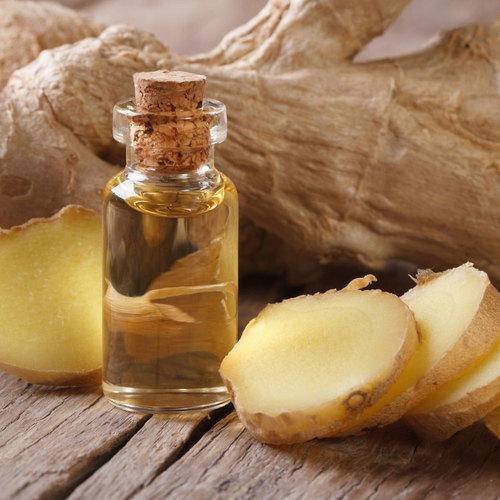No products in the cart.
Categories Essential Oils, Spice Oils & Oleoresin
Description-
Ginger is a warm, spicy herb belongs to Zingiberaceae family, scientifically known as Zingiber officinale; this plant grows up to 3-4 feet in height with narrow stems, green leaves and yellow flowers. Ginger is originated in India and South China and also cultivation in Asia, West Africa and the Caribbean. Ginger oil is warming and energizing so it has many application in medical and ayuveda.
Extraction-
Ginger oil is extracted from the roots of herb Zingiber officinale through steam distillation method.
Composition-
Ginger oil is composed of various components are as follows- geranial,1-8 cineole, Zingiberene, B- bisabolene, B-sesquiphellandrene, α-pinene, β-pinene, camphene, linalool, bornneol, γ-terpineol, nerol, geraniol and geranyl acetate.
Properties-
Ginger oil has thin consistency. Light yellow in colour and has slightly pungent due to its acrid compound gingerol and spicy in aroma, medium to watery in viscosity.
Blending-
Ginger oil is well blends with many essential oil such as cedar wood, lemon, lime, eucalyptus, frankincense, geranium, rosemary, sandalwood, patchouli, myrtle, rosewood, neroli, orange and ylang ylang.
Uses-
- Ginger oil contains Zingibain which is anti inflammatory in nature so it helps in treatment of muscle aches, arthritis, and migraine.
- It is used for treatment for various stomach issues such as colic, indigestion, diarrhea, spasm and stomach aches.
- It is used in aromatherapy as it brings feeling of courageous and self assurance and provides relief from depression, mental stress, dizziness, restlessness, exhaustion and anxiety.
- It is analgesic in nature as it provides relieve from pain due to its Zingibain component, it reduce prostaglandin, it helps in treatment of muscle aches, headache, arthritis, rheumatism and migraine.
- It has carminative effect; it is used to treat food poisoning, motion sickness and vomiting.
- It is anti bacterial in nature so it helps in intestinal infections and bacterial dysentery.
- It is also effective against yellow fever and malaria.
- It is used to provide relief from menstrual illness such as irregular, menstrual cramps and painful menstrual discharges.
- It is also helpful in respiratory issues such as coughs, flu, asthma, breathlessness and bronchitis as it helps in removing mucus from throat & lungs.
- It is a heart ailment as it strengthen heart health, it reduces cholesterol level and prevent blood clotting lead to reduce risk of heart attack and stroke.
- It is aphrodisiac in nature as it eliminates impotency and it halts premature ejaculation.
- It is used to treat kidney stone issue as it dissolves stones in kidney.
- It is used for hair care as it helps in controlling dandruff.
- It is used to treat cancer as it
- It is used to add in meals such as meat as a preservative and flavoring agent.
Safety and Precautions-
- Excessive use of ginger oil can cause skin sensitization.
- Its high concentration also leads to photosensitivity.
- As ginger oil is strong so it should be used carefully and sparingly.
Specification of Ginger Oil:
Appearance – Free flowing liquid
Colour – Pale yellow
Odour – Odour is fresh and woody, characteristic odour of fresh ginger, warm, Spicy the sweet and heavy under note is Tenacious, Sweet & rich almost Balsamic floral.
Physio Chemical Properties:-
STANDARD
Specific Gravity (at 20° C) – 0.870 – 0.882
Refractive Index (At 20°C) – 1.488 – 1.495
Optical Rotation (At 20°C) – -47° – -28°
Zingiberenes (By GC) – (UP to 70%)
Solubility – Soluble in Alcohol and oils, practically insoluble in water.
Storage – Store in well closed containers, in cool and dark storage area.






